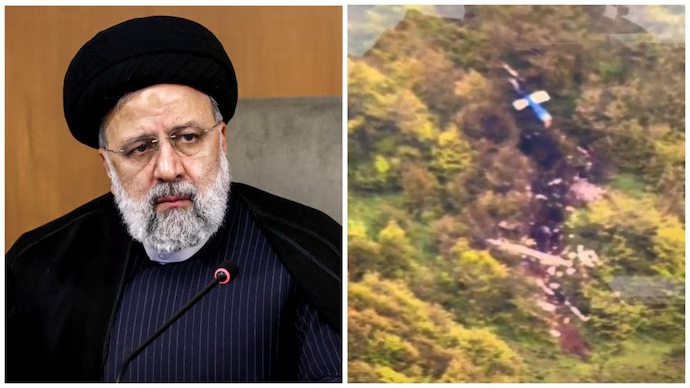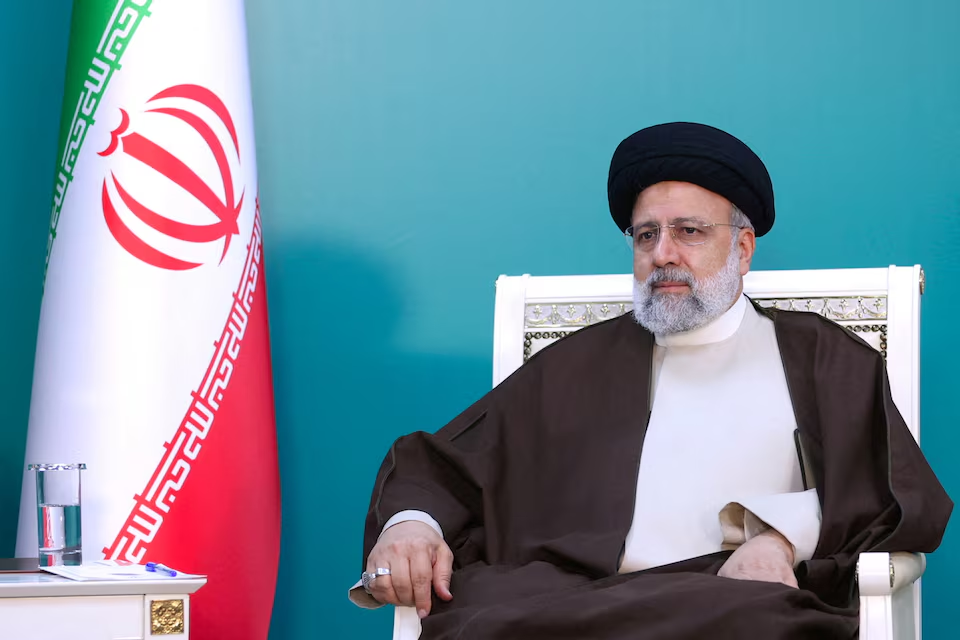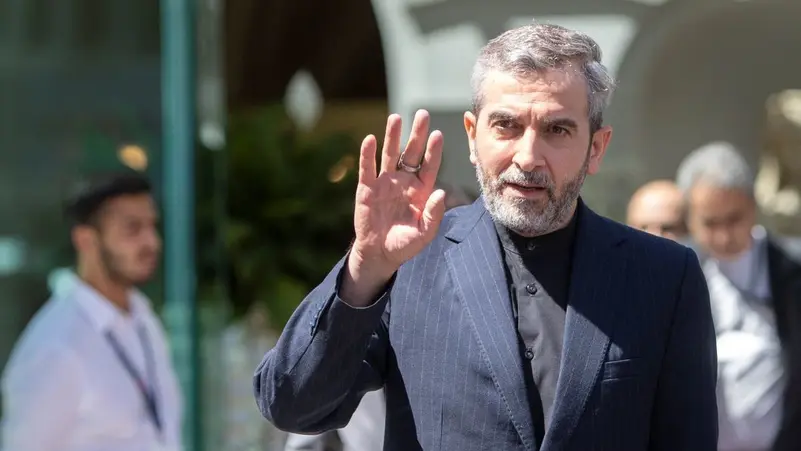Iranian authorities have confirmed that President Ebrahim Raisi and Foreign Minister Hossein Amirabdollahian died in a helicopter crash on Sunday.
Rescuers searched all night in the rough terrain where the helicopter went down. They eventually found the crash site and recovered the bodies of all eight people on board.
When will the Funerals take place?
The bodies of President Raisi, 63, Foreign Minister Amirabdollahian, 60, and the other officials and staff were brought to Tabriz, the capital of Iran’s East Azerbaijan province, where a public procession was held.
Another ceremony will take place on Tuesday morning as the bodies are moved to Tehran. In the capital, there will be another procession and additional ceremonies, with details still being planned.
In Mashhad, organizers are preparing a grand burial for Raisi, who was born in the holy Shia city and managed its significant charitable trust that runs the shrine.

Supreme Leader Ayatollah Ali Khamenei has declared five days of public mourning.
Who will be Iran’s next president and foreign minister?
Mohammad Mokhber is now the interim president, and Ali Bagheri Kani is the interim foreign minister. They might be replaced when a new president is elected.
However, both are likely to stay in high government positions. They were key members of Raisi’s administration, which was often praised by and closely connected to Khamenei.
What impact will this have on Iran?
Iran will need to have elections and pick a new president within 50 days, as per the country’s rules. This is about a year earlier than planned. State media says the election is set for June 28. Candidates can register between May 30 and June 3.
Raisi won the presidency by a big margin in 2021. Many reformist and moderate candidates were not allowed to run, and voter turnout was very low. Since all Iranian presidents under Khamenei served two terms, Raisi was expected to win again next year.
Reza H Akbari from the Institute for War and Peace Reporting said, “The judiciary, the legislative branch, as well as the executive branch are being controlled by the more right-leaning, conservatives in Iran currently. So some analysts believe Raisi’s death may open up room for more traditional conservative [candidates] to make an attempt at the office of the presidency.”

How important was Ebrahim Raisi in Iran?
Khamenei has been the top leader of Iran since 1989. Now, at 85 years old and dealing with health problems, people are thinking about who will take over his position. Raisi and Khamenei’s son, Mojtaba, were considered potential replacements. But many experts believe Raisi wasn’t very likely to become the new leader.
“Raisi wasn’t a strong president, but he was loyal to Khamenei, which made him a top choice for the Supreme Leader,” explained Hamidreza Azizi, who works at the German Institute for International and Security Affairs. Raisi’s conservative background helped him gain support from government supporters and elites, according to Azizi.
Raisi hasn’t said anything about becoming the next leader after Khamenei. However, as a president rarely criticized by conservative politicians, he’s expected to influence Iran’s future.
Mojtaba Khamenei, on the other hand, is a cleric with strong connections to the elite Islamic Revolutionary Guard Corps (IRGC). He doesn’t often appear or speak publicly.
Akbari suggests that the political conflicts that happen after Khamenei’s death could be too chaotic to predict.
Could this affect Iran’s international policies?
Raisi and Amirabdollahian were known as the faces of Iran in the world for about three years. But their absence probably won’t lead to big changes in Iran’s foreign policy. Most Iranian leaders agree on how Iran should deal with other countries.
The temporary President, Mohammad Mokhber, has mostly focused on local issues like managing politics and improving Iran’s economy despite sanctions. But he has also traveled with the president or led groups to other countries like China, Russia, and Africa.
Ali Bagheri Kani, the temporary Foreign Minister, has been leading Iran’s talks about nuclear weapons with other powerful countries. We’re not sure if he has the same strong connections with other Iran-supporting groups in the region as Amirabdollahian did.

According to Akbari, Iran’s foreign policy is mainly decided by the National Security Council, the supreme leader, and sometimes the IRGC (Islamic Revolutionary Guard Corps). So, the policies are not expected to change a lot.
Could there be changes in Iran’s domestic politics?
The changes in Iran’s leadership with Raisi and Amirabdollahian could affect how power works inside Iran. Right now, the government is controlled by conservative and hardline groups. Any struggles for power are likely to happen among these groups, with reformists not having much influence.
The IRGC (Islamic Revolutionary Guard Corps) has been getting stronger, especially since reform-minded leaders lost influence after the nuclear deal fell apart and sanctions were put back on Iran. The hardline groups haven’t been willing to make compromises, especially after protests against the government following the death of Mahsa Amini while in police custody in 2022.
Many important positions have been given to IRGC members since 2021. It’s unlikely that Mokhber, or whoever becomes the next president, will change this. One recent example is in May 2023 when Khamenei chose Ali Akbar Ahmadian, an IRGC commander, to be Iran’s new security chief.

[…] Ali Larijani and ultraconservative Saeed Jalili, have entered the election race. After the death of President Ebrahim Raisi in a helicopter crash last […]